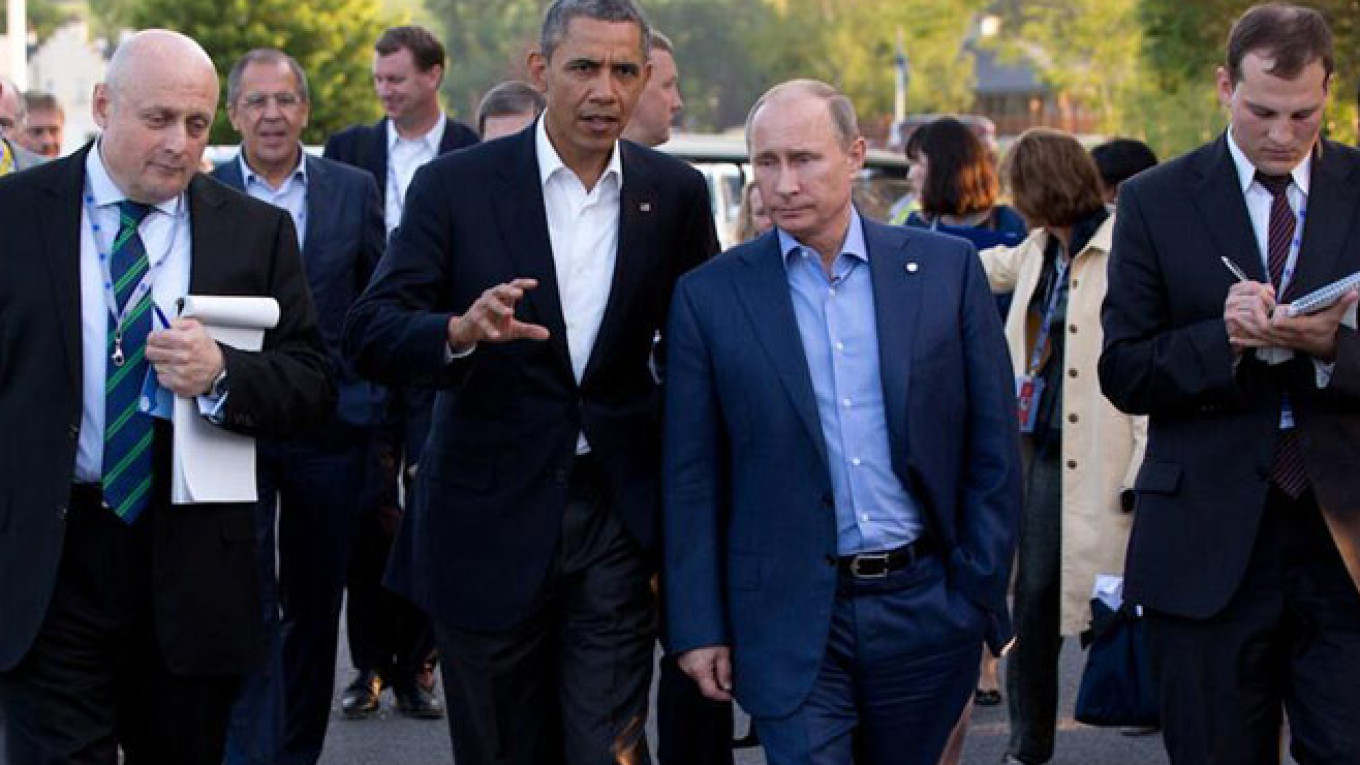The Kremlin will milk for what it is worth U.S. President Barack Obama's "encouragement" with Moscow's "cooperative compartmentalization" on the Iran nuclear deal and Putin's interest in joint efforts to combat ISIS in Syria.
Moscow views the renewed Putin-Obama telephone diplomacy as reinforcing its strategic narrative of U.S.-Russian geopolitical parity where both countries share "unique responsibility" for global security and should unite efforts in combatting "big threats" like ISIS, while ignoring "minor disagreements" over "small issues" like Ukraine.
The Kremlin is emulating Iran's strategy of locking Washington into negotiating on one critical issue while ignoring the negotiating partner's egregious behavior in other areas. The hope is to repeat the 2013 scenario when U.S.-Russia cooperation on destroying Syria's chemical weapons crowded out other disagreements. Re-engaging Obama on ISIS and Syria is seen as a way to eventually trade away the U.S. sanctions on Russia over eastern Ukraine and Crimea.
Obama seems open to exploring Putin's usefulness in ending the civil war in Syria and defeating ISIS in Syria and Iraq. He revealed that Moscow fears Assad's days are numbered and is finally getting serious about negotiating, according to U.S. Deputy Secretary of State Tony Blinken, "to transition Assad out."
Yet Moscow envisions Assad's departure only after Washington recognizes him as an ally in combating ISIS and helps him re-establish control over Syria as part of the war on terror. This is a way to escalate the sectarian fighting, not end it, as Assad's brutality feeds the support for ISIS among Syrian Sunnis.
Obama knows Assad's fate will be decided in Tehran, not in Moscow. "In order for us to resolve [the Syrian civil war], there's going to have to be agreement among the major powers that are interested in Syria that this is not going to be won on the battlefield," he said last week. "Iran is one of those players, and I think it's important for them to be a part of that conversation."
Still, Obama may hope that granting Putin the right optics of "geopolitical parity" with the U.S. on Syria could moderate Putin's behavior in Ukraine and make him a responsible stakeholder in the very world order Russia is now challenging. It's a possibility that Putin cares more about the appearance of being Obama's equal than about what happens in Ukraine.
It's a possibility worth exploring.
Vladimir Frolov is president of LEFF Group, a government relations and PR company.
A Message from The Moscow Times:
Dear readers,
We are facing unprecedented challenges. Russia's Prosecutor General's Office has designated The Moscow Times as an "undesirable" organization, criminalizing our work and putting our staff at risk of prosecution. This follows our earlier unjust labeling as a "foreign agent."
These actions are direct attempts to silence independent journalism in Russia. The authorities claim our work "discredits the decisions of the Russian leadership." We see things differently: we strive to provide accurate, unbiased reporting on Russia.
We, the journalists of The Moscow Times, refuse to be silenced. But to continue our work, we need your help.
Your support, no matter how small, makes a world of difference. If you can, please support us monthly starting from just $2. It's quick to set up, and every contribution makes a significant impact.
By supporting The Moscow Times, you're defending open, independent journalism in the face of repression. Thank you for standing with us.
Remind me later.


